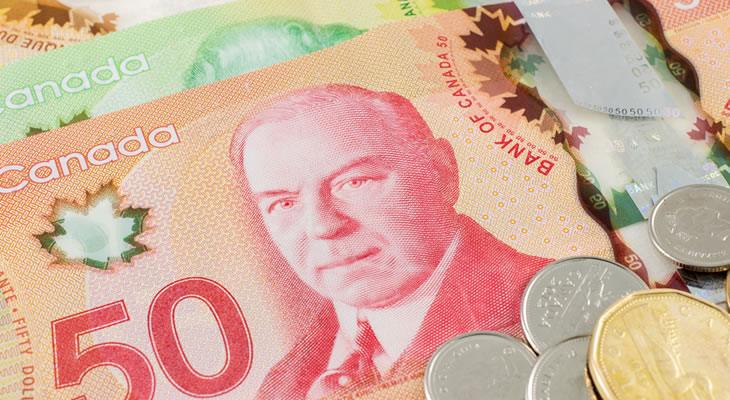Pound to Canadian Dollar Exchange Rate Supported by UK Election Hopes
Despite some weak Pound (GBP) performance at the beginning of the week, the Canadian Dollar (CAD) has been weakening and this made it easier for the Pound Sterling to Canadian Dollar (GBP/CAD) exchange rate to advance to new highs today.
UK election hopes, combined with global trade uncertainties and Bank of Canada (BoC) easing speculation, meant GBP/CAD registered solid gains last week.
GBP/CAD opened last week at the level of 1.7067, and climbed around a cent to close the week near the level of 1.7168.
Since markets opened this week GBP/CAD has continued to climb. At the time of writing today was trending near a 6-month-high of 1.7276.
Investors are hesitant to move too much on the Canadian Dollar ahead of tomorrow’s Bank of Canada policy decision, which could impact the currency’s outlook notably if it surprises markets.
Pound (GBP) Exchange Rates Jump Again as Fresh Poll Puts Conservative Ahead
The Pound outlook is filled with uncertainties ahead of next week’s UK General Election. For now though, fresh polls putting the ruling Conservative Party comfortably ahead are helping the British currency to avoid major losses.
Sterling movement was briefly weak yesterday, as weekend polling indicated that the opposition Labour Party was still narrowing the gap on the leading Conservatives.
However, could the rise in Labour Party support have been temporary? A fresh poll published today boosted market hopes that the Conservatives could extent the lead again, before next week’s election.
A survey from Kantar showed that the Conservative Party had actually increased its lead over Labour to 12 points. This poll boosted hopes that a no-deal Brexit could be avoided and lead to a relatively soft Brexit.
According to Lee Hardman, Currency Strategist at MUFG:
‘The fresh poll results is pushing the Pound higher with the Dollar’s weakness also playing a part,’
Canadian Dollar (CAD) Exchange Rates Struggle as US-China Trade War Appears to Worsen
As Bank of Canada (BoC) easing speculation persists, the Canadian Dollar has seen weaker movement in recent weeks.
Ahead of the bank’s key December policy decision, set to be held tomorrow, investors are hesitant to buy CAD amid concerns that the bank could become more dovish. Canada’s latest manufacturing PMI data, published yesterday, showed manufacturing slowing rather than recovering.
Investors are also hesitant to buy the Canadian Dollar due to the latest developments in global trade tensions.
Concerns of US-China trade tensions have risen in recent sessions. Today, US President Donald Trump indicated that it may even be better to leave a trade deal until after the 2020 US Presidential Election.
According to Neil Wilson from Markets.com, the latest Trump comments indicate the US administration is fully prepared to ramp up protectionist rhetoric that will continue to spook markets:
‘Combined with the barrage of tariff threats on the EU, the comments can be taken as a sign that the White House has no qualms about levying further tariffs and is happy about using trade as a economic, political and diplomatic weapon.’
Pound to Canadian Dollar (GBP/CAD) Exchange Rate Investors Await Bank of Canada (BoC)
A lack of particularly impressive Canadian data, combined with fresh fears that the US-China trade war could continue for at least another year, have left markets more anxious about Canada’s economic outlook.
This has led to fresh speculation that the Bank of Canada (BoC) could be pressured into taking a more dovish stance on monetary policy.
As a result, Canadian Dollar investors are currently highly anticipating Wednesday’s session. On Wednesday, the BoC will hold its December policy decision. Canadian labour productivity data from Q3 will be published as well.
If the bank becomes more dovish and hints that a Canadian rate cut is possible in the coming months, the Canadian Dollar could weaken.
The Pound to Canadian Dollar (GBP/CAD) exchange rate could further extend its gains if upcoming UK election polling shows Britain’s Conservative Party polling strongly.


Comments are closed.